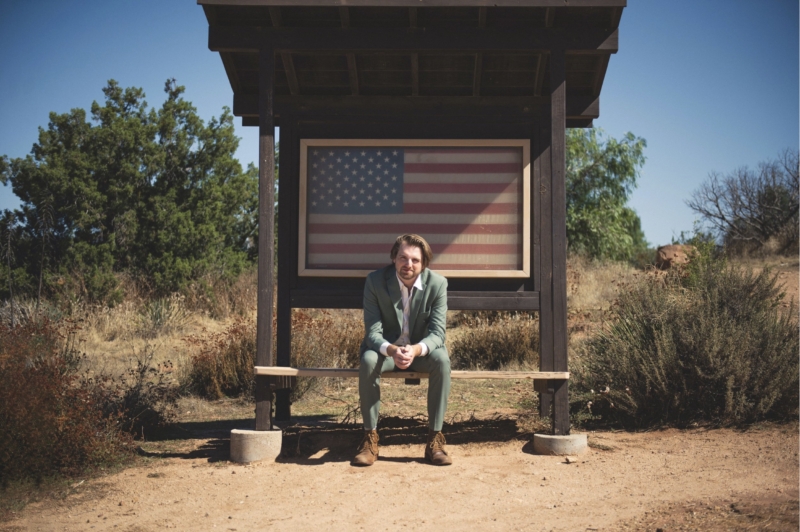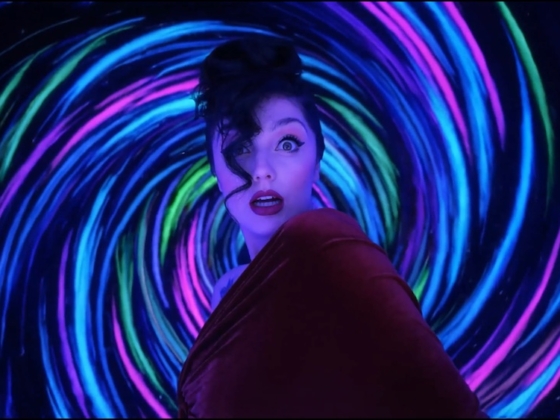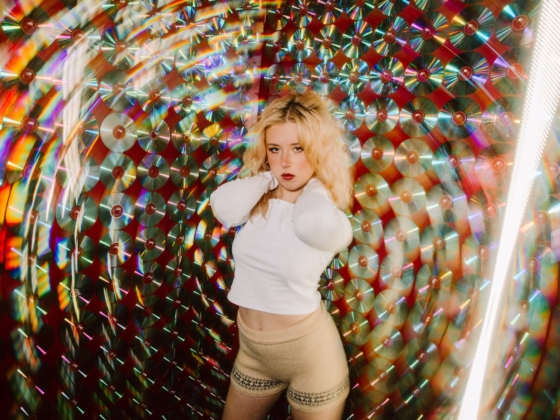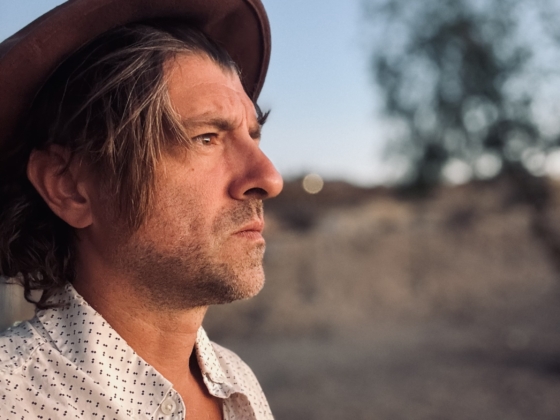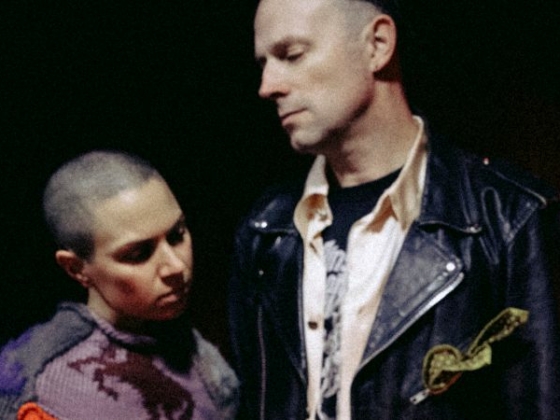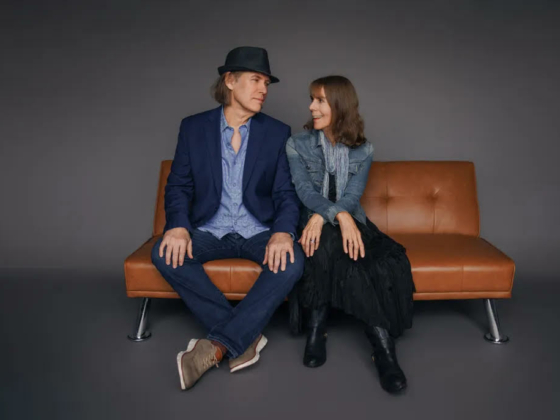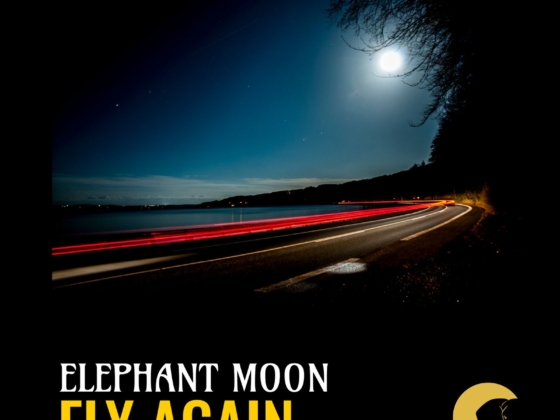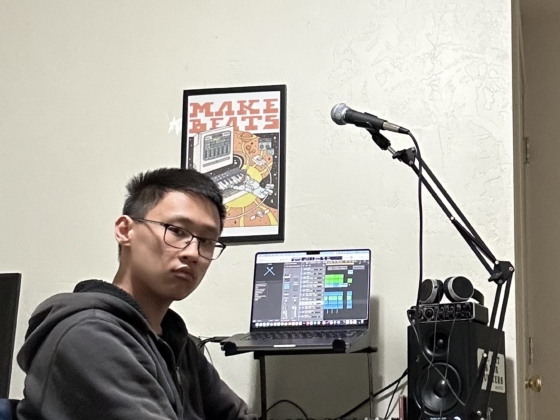Los Angeles based multi-instrumentalist, songwriter, singer and creator Wayne Whittaker better known as Pigeon Club, has just released his sophomore album. Entitled Another Year In The Minors, the nine track folk rock journey takes listeners through a major transitional period in the artist's life. Pigeon Club teamed up with long time collaborators John Would (Fiona Apple, Warren Zevon) and Amy Wood (Fiona Apple, The Donnys The Amys) who co-produced the phenomenal album.
The LP begins with the dreamy indie rock gem "Liar". A song all about the defence mechanisms we put up, Pigeon Club has crafted an autobiographical yet relatable single chronicling the many layers of self doubt. Layered swelling guitars, breezy instrumentation and 70's folk inspired melodies are highlights in this anthemic song. Then there is the indie rock title track "Another Year In The Minors" which is an ode to blue collar hard work and the struggle for success. Crunchy guitars, a sing-a-long worthy chorus and nostalgic rhythms are hallmarks of the song. Pigeon Club picks up the pace with the Tom Pettyesque "Is Will Soon Be Was". Driving basslines, blazing psych guitars and warm vocals add to the song's allure. Another standout is the melancholic "Ancient History", a folky tune all about the passage of time.
Earmilk chatted with the creator on his incredible new album, creative process, collaborations and more.
Congrats Wayne on your new album. Tell our readers how you would describe the new music? Can you share the inspiration behind Another Year In The Minors and creative process?
I swear I’m not trying to maintain any sort of mystique when I say I’m not entirely sure what genre Pigeon Club is. Is it rock? I mean, sure, but what does that mean? All the songs were written on acoustic guitar, and I do own one of those harmonica holders, so does that make it folk? Is it alternative? Alternative to what? Please don’t say “an alternative to good music,” even if such a devastating burn is hard to resist.
‘Another Year in the Minors’ is my second album, but it’s my first confident album. The self-titled one was me dipping my toes in, kind of asking permission to sit at the cool kids table after years of backing up other musicians who I so respect and admire.
That first record was a success because I proved to myself that I could do it, and so I wanted this album to be more honest and vulnerable. Focusing less on “universal themes” and getting a bit more personal. Which isn’t to say the songs are wholly autobiographical, or literal. I approached this album wanting to write more directly about my life experiences, which is a scary prospect – exposing yourself to a theoretical audience. I really had to ask myself, “is it worth it? To be honest and lay it out on the line, even if only a dozen people end up really listening to it?” And I decided it was.
How did you come up with the unique name of Pigeon Club for your musical project?
The pigeon club is a real place. There are a ton of them actually. But the specific one I’m referring to is in Pawtucket, Rhode Island. My dad (and, incidentally both grandfathers) bred, raised, and raced pigeons. It’s an extremely niche hobby, once described as the poor man’s thoroughbred racing. The pigeon club is a VFW type of building where these guys would meet and hang out. There were community events, and fundraising barbecues. It was a real staple of my youth. As the older generation of racers has passed away, the club has become less social and fallen into disrepair. A shame, really.
You decided to collaborate with Grammy winning co-producers John Would and Amy Wood on the new album. Tell us why you decided to work with these two and what did they bring to the album?
John and Amy are the best friends my music has ever had. John really encouraged me to fully realize my songs, when initially my hesitancy and shyness led me to think of them as quiet folky songs. But he and Amy have pushed me, and we all share a lot of the same influences and love the same records, and we wanted to make something that sounded like the music we love.
Do you have a favorite song on the album and if so what is it and why?
“Give a Shit” is probably the most personal song I’ve ever written. It took me about two years to finish, because if I let myself finish what I wanted to say lyrically, it meant having to confront some things I really would’ve rather not have confronted about myself and about the relationship I was in at the time.
I also started writing the title track about 8 years ago. It went through many iterations before it became this sort of sad-sack anthem for musicians. It’s a song about aging in the indie scene, about believing in what it is you're doing, the art you're making and why you're making it, even in the face of unbelievable odds. There’s no real secret to it. It's about showing up, grinding it out and not giving up…yet.
Who are some of your musical inspirations and can they be heard on the new album?
The Beatles, Elvis Costello, Aimee Mann, Steely Dan, Sheryl Crow, Wilco, Neil Young, The Eagles, Randy Newman. They’re all in there because they’re all in me. Also Warren Zevon (who, incidentally, John Would played guitar for in the early 80s)”.
What do you hope listeners take away from the new collection of music?
It’s not a small request to ask people to give 33 minutes of their undivided attention, but hopefully you can find the time on a drive or commute. Or maybe while you’re folding laundry you’ll give it a spin and hear some things that you relate to. I hope the themes presented in these songs feel familiar, at the very least so that we can compare notes.
You have toured with many artists and have played many shows both solo and as part of bands. Tell our readers a funny tour story?
One of my personal favorites is from a short tour when I was just starting out. We played at a place in Baltimore called Club K, which was this former karaoke bar turned DIY venue. The guy running the place, who introduced himself as Thor, really wanted to make sure the band was paid at the end of the night. The problem was that there were more people on stage than there were in the audience, and he ended up giving us like $3 to split between two bands, which somehow felt worse than not being paid at all. But, it’s the thought that counts. So thanks, Thor.
Why do you make music?
I think because I’m searching for something, vibrationally. I’ll know it when I feel it.
Finally, what's next for Pigeon Club?
It’s funny, I literally just read this Simone Biles quote where she said people “really gotta stop asking athletes what’s next after they win a medal at the Olympics.” And I feel like self-releasing a record in today’s climate is also deserving of a pause and moment of self-appreciation. But I’m so excited to share this music, and for our release show at Healing Force of the Universe in Pasadena on August 18.
Connect with Pigeon Club: INSTAGRAM

